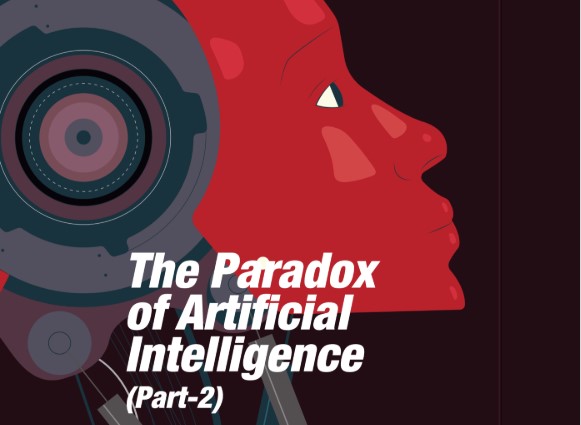
What are some of the popular crazes about artificial intelligence now? Along with optimistic or ambitious expectations, there are some worrying thoughts as well. Like one day- robots will dominate the world; or human intelligence will be totally beaten by artificial intelligence.
It is an obvious fact that a machine can work continuously without the need of rest or other breaks, carry out things exactly in the way it is programmed and does not usually vary its performance being impacted by other factors. These are some obvious benefits of machines over human workers. When World Chess Champion Gary Kasparov lost a game against IBM’s “Deep Blue” computer in 1996 (the first time a reigning world champion lost to a computer using regular time control); there was a spark all over the world that this is going to be the start of machine dominance over human intelligence.
More than two decades have passed since then, and in the meantime digital technology including AI related applications have swept every sphere of our lives. However, it still seems early to comment that whether machines can indeed replace human brains in all arena. Particularly, human brains are such a unique creation of almighty, that some mystery of it stills seems to remain undiscovered.
Creative activities is obviously one of them. Still, we have not found a machine that can write novels, draw pictures or compose songs by themselves like human artists. Despite being extremely superior in analysis, machines still can not perform strategic analysis. Still there seems a long way for a machine to acquire basic human feelings (like: empathy, love or hatred).
Even from technical perspective, machine based processing still may not give 100% accurate result in all fields. After all machines work based on their algorithms in which they have to remain extremely bound. Anything beyond that become unsolvable for them.Or the generated data can be flawed as well. A recent test of Amazon’s facial recognition tool, and the software showed incorrect matching of 28 members of US Congress with people who have been arrested for a crime!
AI no doubt has brought immense changes to healthcare, with image recognition and data categorization capacities. They have helped make the patient-doctor equation stronger and medical treatments faster and more manageable. Visual nurse assistants can remind patients of medication timings. Surgeons use AI to employ smaller tools and more precise incisions. However, none of these significant advancements have come without human support. AI and humans are a balanced team in delivering health care diagnosis; AI alone cannot do such magical wonders.
AI cannot diagnose a medical condition always accurately. While it is impressive that an AI-programmed device can generate insights on body stress and mental health, it cannot make a full prediction of the health condition without human help. It is assumed that the human element is what will lead this transformation, while tech complements, informs and provides scale and depth in a way that has not been possible in the past.
Few recent examples in this regard:
- Google’s photo recognizer marks black people as “gorilla”;
- YouTube’s voice-to-text feature does not recognize female voices;
- HP face recognition cameras cannot recognize Asians;
So like most other technologies, best usage of AI is still somewhat a visionary target . While its technical improvements have been extremely fast in recent years, that may not be sufficient to establish such schemes/people. This in fact creates an opportunity for all those working in different arena to capture real requirement of respective society/place, link it with relevant AI tool and strengthen its values accordingly.
Click here to read the previous part of this article.








